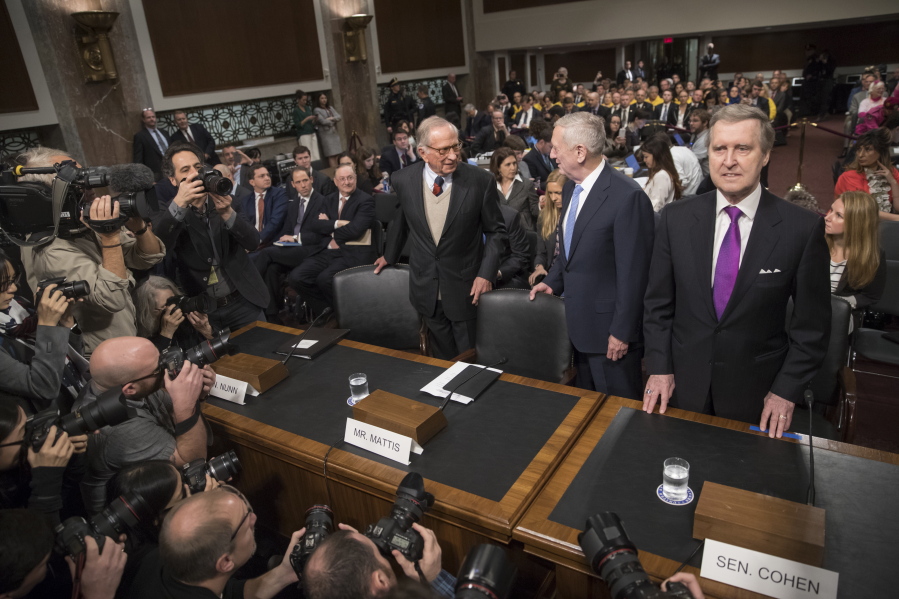WASHINGTON — The House is expected to pass by a comfortable margin legislation that would allow retired Gen. James Mattis to run the Pentagon for Donald Trump.
The bill has strong GOP support and likely will be backed by several Democrats who believe Mattis’ decades of military experience and reputation for sound judgment are a necessary counterbalance to Trump’s impulsive, bombastic style.
The vote is scheduled for Friday.
The legislation grants an exception to the law that bars former service members who have been out of uniform for less than seven years from holding the top Pentagon job. The restriction is meant to preserve civilian control of the military. Mattis, 66, retired from the Marine Corps in 2013.
The Senate on Thursday easily cleared a similar measure, 81-17, with 30 Democrats voting in favor of the bill. The legislation is separate from a Senate confirmation vote on Mattis. But the strong bipartisan support signals there are no real hurdles to approving Trump’s choice for defense secretary shortly after the president-elect is sworn in next week.



